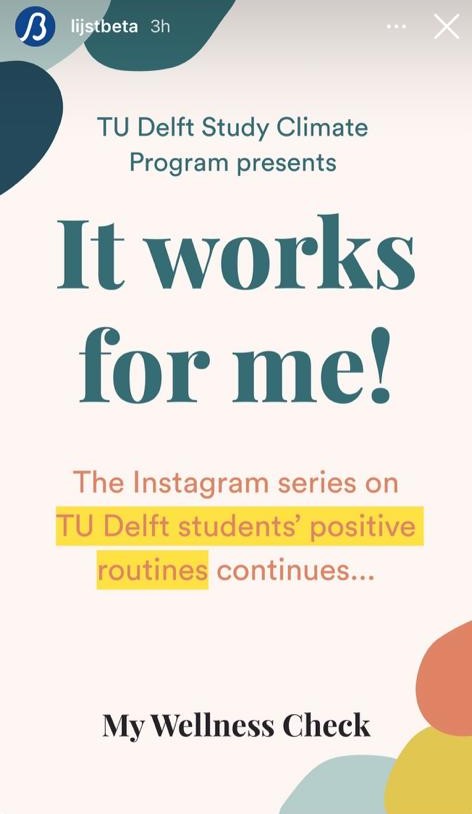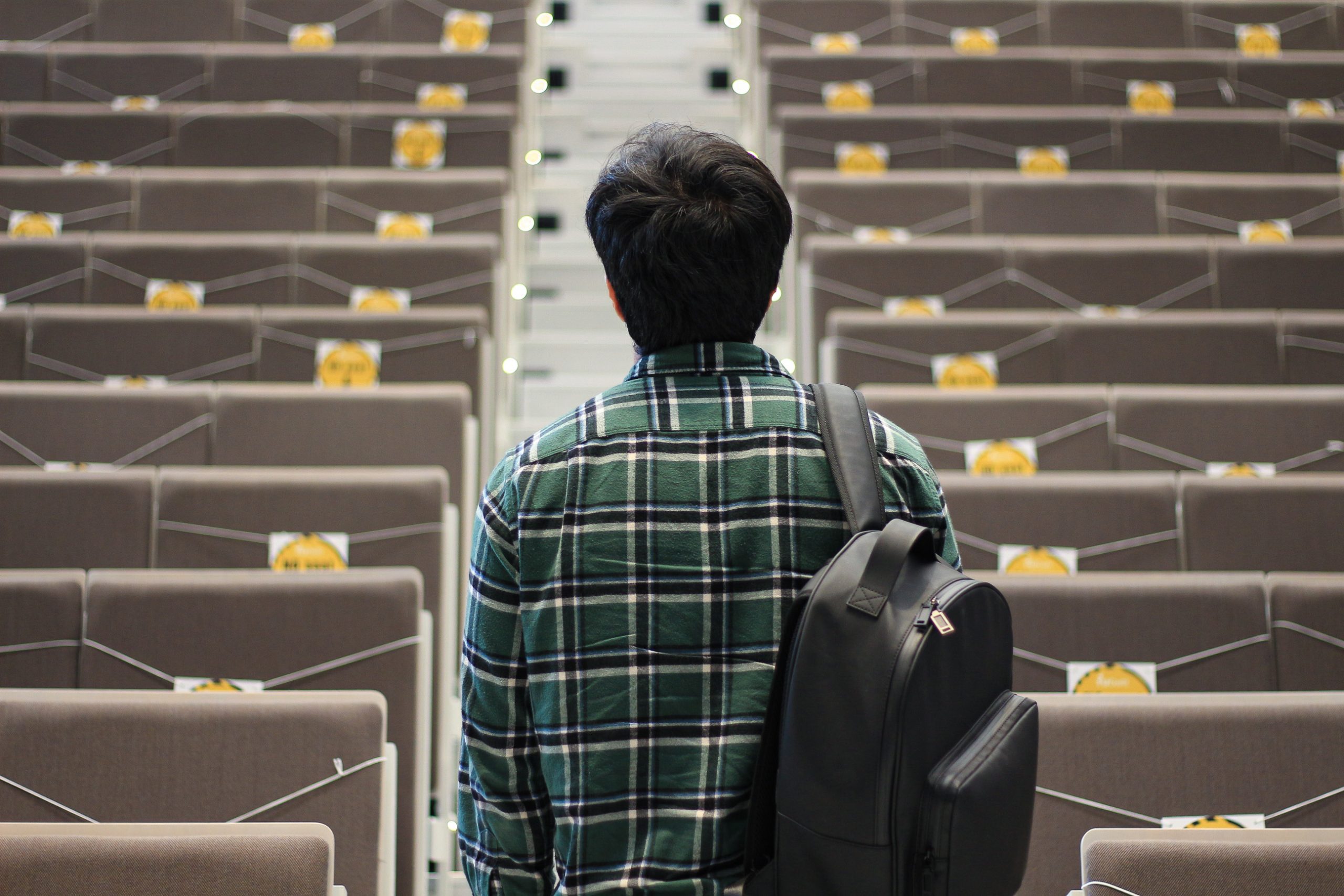Four out of five students think that TU Delft should support them in the area of mental health. This emerged from TU Delft’s My Wellness Check.
My Wellness Check started during the corona crisis. (Photo: Justyna Botor)
PhD student Willem van der Maden, who co-prepared and carried out the My Wellness Check, says that it covers mental health in the broadest sense of the word. “Some students talk about the presence of student psychologists. Others would like teachers to ask them how it’s going once in a while,” he says.
The well-being survey has been done three times a year since the corona crisis, but this is the first time that students are being asked what they expect from TU Delft in terms of mental health. “Eighty percent of the students expect TU Delft to support them in this area,” says Van der Maden. He calls this a strikingly high percentage. “Though it does not surprise me. I think that it has to do with the times and this generation that you expect to receive mental health support from the place where you study. You see this in the wellness economy whereby well-being takes precedence over economic growth. Awareness of mental health is emerging in different places, such as sports clubs and municipalities.”
Campaign
Van der Maden and his colleagues analyse each survey with special work groups comprising of members such as teachers, student psychologists and deans. After that they link points of action to the outcomes for TU Delft staff. This is done through infographics. They advise teachers to have understanding for the personal problems of students.

On the basis of the results, a short campaign targetting students was started at the beginning of this month called It works for me. “My research assistant Sofia Fonda worked on it with TU Delft student associations. Under the motto ‘What works well for me, might work as well or you’, students share their routines or rituals that help them study and other welfare related problems. Each association explains the campaign on their Instagram page.”
Faculty polls
The well-being survey also contains questions like what students think of hybrid education and how they experience their stress level. Van der Maden says that “What stands out even more is that students value education more strongly when they experience the course material as valuable either for themselves or for society.” He continues. “At first glance it looks like an open door, but that is not the case. I only started noticing it recently myself. One example is that my students were much keener on an assignment that was later used for this survey than for assignments that are not used in practice. Given the outcome, the Study Climate Group at TU Delft will talk to top teachers and students about how we can create greater value in education.”
At present, My Wellness Check is being done at university-wide level. In the future the initiators/organisers will also adapt the poll to faculty level. “There are different issues at play in each faculty. We can look even more closely at the factors that impact the well-being of students and then take targetted action.”
Do you have a question or comment about this article?
a.m.debruijn@tudelft.nl


Comments are closed.